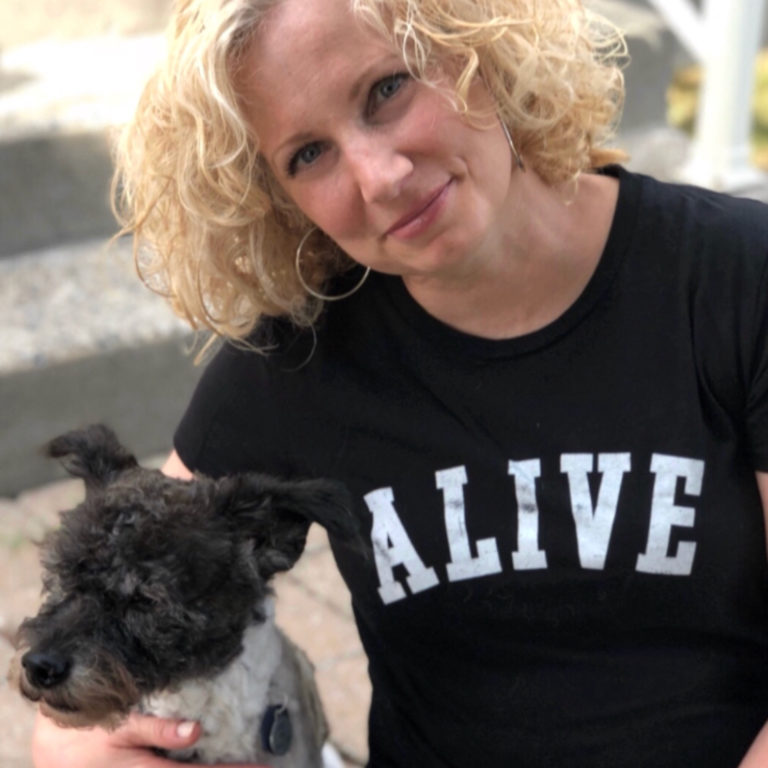Annie

I had my first mammogram at age 40. I didn’t have a family history of breast cancer, I was young and healthy, so when the results came back normal, I was relieved, and just moved on.
A few months later, I felt a small lump in my right breast. I didn’t worry too much-I had always had lumpy breasts-but still scheduled an appointment with my gynaecologist. Following a physical exam, he said it was one of my normal glands, noting that the mass wasn’t fixed, was moving, and my recent mammogram had come back normal so I shouldn’t worry. I trusted him, trusted my mammogram and went on with my life.
The mass was growing, so I went back to see my doctor, who again reassured me, but finally sent me for an ultrasound. I remember that day like it was yesterday. The radiologist asked me to stay for a biopsy. I had one done that day, but ended up at a private clinic two days later, unable to handle the anxiety while having to wait for results. I was diagnosed with breast cancer that day, over a year after feeling the small lump. I was 42.
It’s only then that I started hearing about my breast density. I was informed that I had dense breasts, which increased my risk of developing breast cancer. I was told that looking for cancer on my mammogram was like looking for a polar bear in a snowstorm, as dense tissue appears white on a mammogram and so does cancer, creating a masking effect. My first mammogram had missed the cancer; I was informed that had I been sent for additional screening, it could have been found at least a year and a half earlier.
Looking through my medical records, I saw that my breast density was noted on the mammogram report sent to my doctor, which is the procedure in Quebec. He knew I had dense breasts, so did the radiologist who looked at my mammogram. The only one who didn’t know was me, the patient. This was my body, yet no one felt that I should know. This lack of transparency resulted in cancer progression, lymph node involvement, and the need for aggressive treatments and surgeries. I had to undergo 16 chemotherapy treatments, a bilateral mastectomy, reconstructive surgeries, I received one year of intravenous Herceptin, underwent a full hysterectomy, and following Tamoxifen, I have been taking an aromatase inhibitor, for a total of 10 years of medication. It has been a very difficult road. An earlier diagnosis could have prevented some of these harsh treatments and surgeries.
I was denied important information about my body and my cancer risk. Breast density is a more prevalent risk factor than a family history of the disease; yet, I was kept in the dark. I was denied the opportunity to be proactive with my health. I advocate because what happened to me should never have happened, but sadly, it is still happening.
Women have the right to know. Be proactive. Ask about your breast density and ask for additional screening if you have dense breasts.
